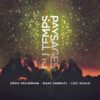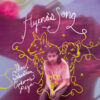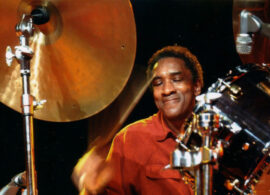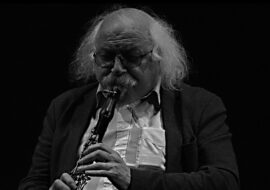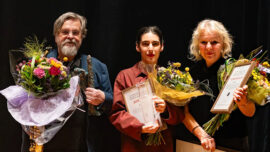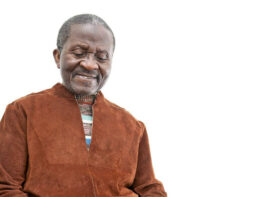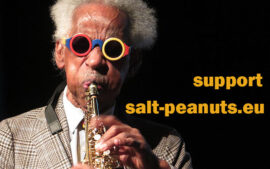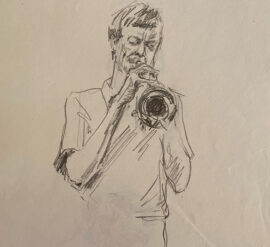
The Italian folk song «Bella Ciao» is associated with he partisans of the Italian resistance who fought against the occupying troops of Nazi Germany but is used all over the world as a hymn of resistance against injustice and oppression, and echoes the voices of many people who are still striving for freedom. This song was covered by many, including Tom Waits and Marc Ribot, and was translated into many languages. Italian prolific clarinetist Marco Colonna grew up hearing this beloved song, and the story of his elders who fought «to replace the cage of dictatorship or fascism with the open window of democratic governance».
Colonna’s solo clarinet album, 1945-2025 Eight Decades, offers eight variations on the theme of «Bella Ciao», one for each decade since 1945, and one for each struggle for freedom and human rights. This cycle begins when the song was identified with the Italian resistance, and continues with the Cuban revolution, the sacrifice of four million Vietnamese in a futile American war, the Marxist and Pan-Africanist revolutionary Thomas Sankara, who liberated Burkina Faso (and wrote its national anthem), the Rwandan genocide when a million people were torn apart, the oppression of the mass anti-globalization demonstration in Genoa in 2001, the Democratic Confederalism of Western Kurdistan – ROJAVA and its exemplary resistance of women, and ends with our current decade with «the abomination we live with every day», the mass destruction and mass killings of Palestinians in Gaza Strip by Israel.
The hopeful, compassionate message of «Bella Ciao» still rings some bells and asks us all to beat the drums of resistance. Colonna improvises beautifully on the theme and enriches its transformative, powerful emotional message with clever quotes of real and imagined folk traditions. This song alone – literally, in Colonna’s solo clarinet versions – may not erase the injustice and evil, but it has and still inspires many to take action and resist, even at the cost of their lives. Often, the song’s most relevant and most humane message, as well as the communal playing of it, marks the beginning of a positive change in long decades of malicious history.
…This is the flower of the partisan,
oh bella ciao, bella ciao, bella ciao, ciao, ciao
this is the flower of the partisan
who died for freedom.
Eyal Hareuveni
Marco Colonna (clarinet, bass clarinet)

